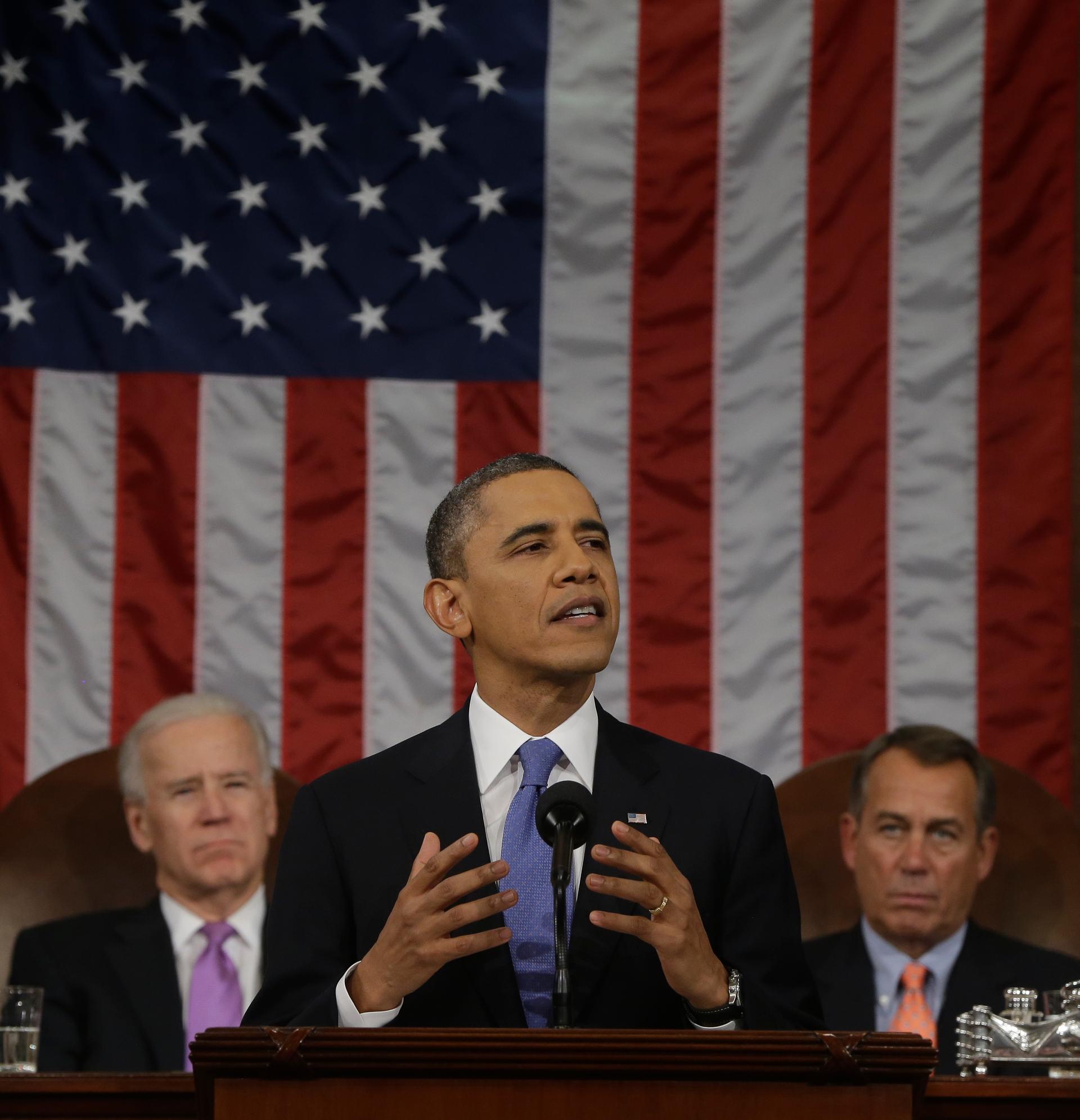Transatlantic free trade deal in the works for US and EU
President Barack Obama, flanked by Vice President Joe Biden and House Speaker John Boehner of Ohio, gestures during the State of the Union address before a joint session of Congress on Capitol Hill in Washington, Tuesday Feb. 12, 2013.
European Union leaders agreed Wednesday morning to talks with US President Barack Obama on a long-awaited transatlantic free trade agreement that would remove tariff barriers and regulatory hurdles.
Obama mentioned launching the talks during his State of the Union address Tuesday evening:
"Tonight, I'm announcing that we will launch talks on a comprehensive trans-Atlantic trade and investment partnership with the European Union. Because trade that is fair and free across the Atlantic supports millions of good-paying American jobs."
The Europeans had already approved talks on the transatlantic deal at a recent summit in Brussels, der Spiegel reported.
Both sides want talks to start by the end of June on an alliance that would include half the world’s economic output and more than a third of all trade.
EU Trade Commissioner Karel De Gucht, who called plans for the alliance “groundbreaking,” said he hoped work would be completed in two years.
European leaders on Wednesday welcomed Obama’s statement.
British Prime Minister David Cameron called Obama’s decision “great.”
“A deal will create jobs on both sides of the Atlantic and make our countries more prosperous,” he said.
European Council President Herman Van Rompuy and European Commission President Jose Manuel Barroso said in a statement that:
The transatlantic economic relationship is already the world’s largest, accounting for half of global economic output and nearly one trillion dollars in goods and services trade, and supporting millions of jobs on both sides of the Atlantic.
We are committed to making this relationship an even stronger driver of our prosperity.
However, the negotiotians will be the hardest part.
Agence France Press reported that a transatlantic agreement could stall efforts at the new global deal discussed during the Doha round of the World Trade Organization, originally proposed almost ten years ago. Moreover, the US Congress, which will have to approve the free-trade agreement, includes many conservative with little faith in European unity.
However, if the agreement is signed, Barroso said, it's going to be a "win-win situation."
We want to hear your feedback so we can keep improving our website, theworld.org. Please fill out this quick survey and let us know your thoughts (your answers will be anonymous). Thanks for your time!
